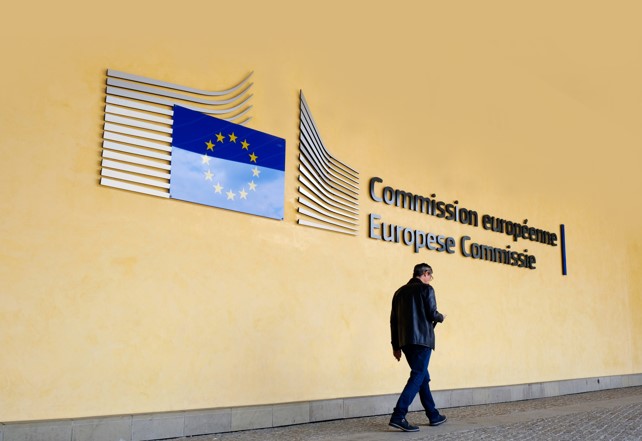Home » European Commission proposes reform of pharmaceutical legislation — what the stakeholders say
The European Commission has adopted a proposal for a new Directive and a new Regulation, which will revise and replace the existing general pharmaceutical legislation.

The Commission billed the proposal as the largest reform of pharmaceutical legislation in over 20 years, which they say will “make it more agile, flexible, and adapted to the needs of citizens and businesses across the EU”. Over these pages of the IPU Review, we have compiled information from key stakeholders, and will outline the proposals from the European Commission.
The European Commission published the proposals for reform of pharmaceutical legislation in April, saying the changes “will make medicines more available, accessible and affordable. It will support innovation and boost the competitiveness and attractiveness of the EU pharmaceutical industry, while promoting higher environmental standards.”
The Commission outlined the challenges currently being experienced in this area, including:

They added that the importance of balancing the need for affordable and accessible medicinal products in parallel with the creation of an environment that fosters innovation and competitiveness in the EU is appreciated and supported by both Ministers.
Minister Donnelly said: “My Department is chairing a Working Group which will operate to support Ireland’s response to the proposal from a national perspective. I welcome the publication of the EU Commission’s legislative proposal, which seeks to ensure a fit for purpose medicines regulatory framework is put in place, to ensure that patients in the EU can have trust and confidence in the safety, efficacy and quality of the medicines they take. I look forward to working with EU partners in the negotiations to realise this.”
Minister Coveney said: “Companies in Ireland are at the forefront of developing innovative treatments and investing in costly research, development and innovation. In that regard, we will work hand-in-glove with the Department of Health to ensure that the EU and Ireland optimise our competitiveness and remain the destination of choice to locate patent-generating and patent reliant business activities, while also ensuring that patients across Europe can access innovative treatment options.”
Stakeholders are encouraged to ensure their views are expressed with regard to the legislative proposal and feedback from interested parties can be submitted to EUpharmastrategy@health.gov.ie.
We share the common goals of providing equitable access to medicines throughout EU Member States, reducing shortages and ensuring that Europe can be a world leader in medical innovation. Our industry welcomes the EU Commission proposals to future-proof and upgrade the EU regulatory system, making it more efficient and competitive, and many of the measures outlined to deal with shortages.
However, we believe that some of the proposed legislative provisions will go against stated objectives. They will reduce innovation in medicines in Europe, causing a loss of competitiveness and create a risk of fewer new medicines being available to Europeans.
IPHA welcomes any measures which will help to alleviate supply chain issues. However, we do believe that shortage prevention plans should be practical and take into account pressures which can arise due to unexpected high demand as experienced last winter.
The proposed reduction in IP rights is inconsistent with the overall aspiration of the EU package for innovation. Instead, it will degrade the environment for research, development and ultimately, the production and provision of innovative new medicines by disincentivising companies in choosing the EU, and ultimately Ireland, as a source of medicines development and innovation.
We believe that the major challenge will be striking the right balance between providing equitable access to medicines across Member States and protecting innovation in Europe. Creating an EU wide policy on launching medicines in all Member States within two years, is dependent on actions by national health authorities to enable access to medicines within this timeframe. Making changes to IP rights at a European wide level is not the solution to national health systems challenges and it will reduce the level of innovation in the region.
Padraic O’Brien, Chairperson, MFI
Based on our initial analysis of the European Commission’s proposed pharmaceutical reforms, MFI have noted a number of progressive measures such as additional incentives for repurposed medicines which could potentially have a positive impact on the medicines supply chain. Nevertheless, we feel additional clarification from the EU Commission on certain elements of the reform package is necessary.
Over the next few months, MFI will continue to monitor developments with regard to the proposed reforms, working with our sister organisation Medicines for Europe and engaging further with key stakeholders both in Ireland and the EU.
The HPRA welcomes the publication by the European Commission of its proposal to revise the EU pharmaceutical legislation. This will represent the most significant reform of the regulatory framework for medicines for over 20 years and provides a unique opportunity to leverage scientific and technological progress and to create a regulatory environment that protects and enhances public health.
We very much support the main strategic objectives associated with this proposal which include:
The proposal published by the Commission marks the starting point of the EU legislative process, which will also involve the Council and the European Parliament. The draft legislative text runs to over 500 pages and includes detailed provisions which cover the entire medicines’ lifecycle including clinical development, authorisation, manufacture, distribution and market surveillance, which will require careful consideration.
The HPRA will be working closely with the Department of Health, other relevant Departments and public bodies to develop our national position in relation to the Commission’s proposal. As part of this process, we also look forward to engaging with other stakeholders to hear their views on the proposal with a view to ensuring that the revision of the pharmaceutical legislation delivers on the key strategic objectives.

We asked all MEPs for their views on the proposals from the European Commission, and we received the below replies.
Deirdre Clune, Fine Gael, Munster and South Leinster
The publication of the much-anticipated EU pharmaceutical package is a very welcome step towards creating a more patient-focused pharmaceutical framework whilst keeping innovation high on the agenda.
The proposal aims to create a Single Market for medicines, ensuring timely and equitable access to safe, effective, and affordable medicines for all patients across the EU, with streamlined authorisation processes leading to faster medicine approvals.
The revision also seeks to strengthen the regulatory framework for medicines, with greater transparency and accountability, improving drug safety and the EU’s ability to monitor the safety and effectiveness of medicines post-approval.
The legislation contains some provisions that will help to address medicine supply chain issues, such as the idea of an EU list of critical medicines, the requirement of a shortage plan for companies, and the strengthened role of the EMA in monitoring medicine usage. This package also addresses orphan drugs and paediatric medicines as well as providing an outline as to how we deal with antimicrobial resistance (AMR).
Overall, the revised package is a step in the right direction. We should view the package as a toolbox for creating a modern regulatory environment, and recognise that it will not fix all issues immediately. We need strong cooperation across Member States and within the pharmaceutical industry, while remembering that patients must be at the heart of healthcare.
Chris MacManus, Sinn Féin, Midlands, Northwest
The priorities for the EU’s new pharmaceutical legislation should be to ensure equal access to affordable medicines, while preventing shortages and providing transparency on costs to national health systems. I think the linking of intellectual property rights to social utility is a good step forward, as the Commission proposes making certain market protections conditional, for example on a drug’s availability in all 27 Member States, or whether it addresses unmet medical needs. There are also several measures that will accelerate the licensing of generics, such as a simplified authorisation process and the shortening of the regulatory data protection period for new medicines. These measures should help improve patients’ access to more affordable generic medicines.
I welcome proposals for an EU list of critical medicines, and greater responsibility for industry to manage their stock of critical medicines. EU coordination at this level makes sense, given our EU-wide supply chains, and it worked well during the COVID-19 pandemic.
I have concerns about the transferable vouchers proposal for the development of novel antibiotics. The idea here is that companies could use their voucher to extend the monopoly on any of their products. More than likely, companies will use this for their most profitable products, delaying the introduction of generics for the most popular drugs and significantly increasing costs to national healthcare systems. An alternative would be public funding for antimicrobial research which attaches clear conditionality around the availability and affordability of the medicines developed.

Frances Fitzgerald, Fine Gael, Dublin City and Council
It is important to remember that the Commission’s proposed pharmaceutical package is just the start of the discussion. The European Parliament and the Member States will all have their say before final negotiations take place. In this sense, these proposals are broadly welcome so that this work can get underway.
Over the coming months, it is important that all sides aim for balanced package. Firstly, it is important that the final proposals meet the needs of patients. The COVID-19 pandemic showed us all the importance of access to new medicines. The aim of the European Health Union must be to guarantee the supply of safe, effective and affordable medicines for all European patients on a fair basis. It is also important that any new laws do not negatively affect innovation and investment, particularly when it comes to orphan drugs. The pharmaceutical sector is an important employer in Ireland and their confidence in Europe as a place to do business is important. We do not want to make it harder to produce novel medicines in Europe or make ourselves overly dependent on medicine producers or suppliers of raw materials elsewhere in the world. Such a development would harm Europe’s pharmaceutical base, damage vital supply chains, and make life harder for patients and their families. That is why incentives should be included to promote research and development, why unnecessary red-tape should be reduced, and why reforms to the EMA are needed to promote greater responsiveness.
Pricing and reimbursement will remain a matter for Member States. A focus on supply should involve greater competitiveness and tackling shortages while also ensuring robust testing and strong environmental standards in production. We must guarantee that important medicines are available to people and countries whenever they are needed.

Highlighted Articles